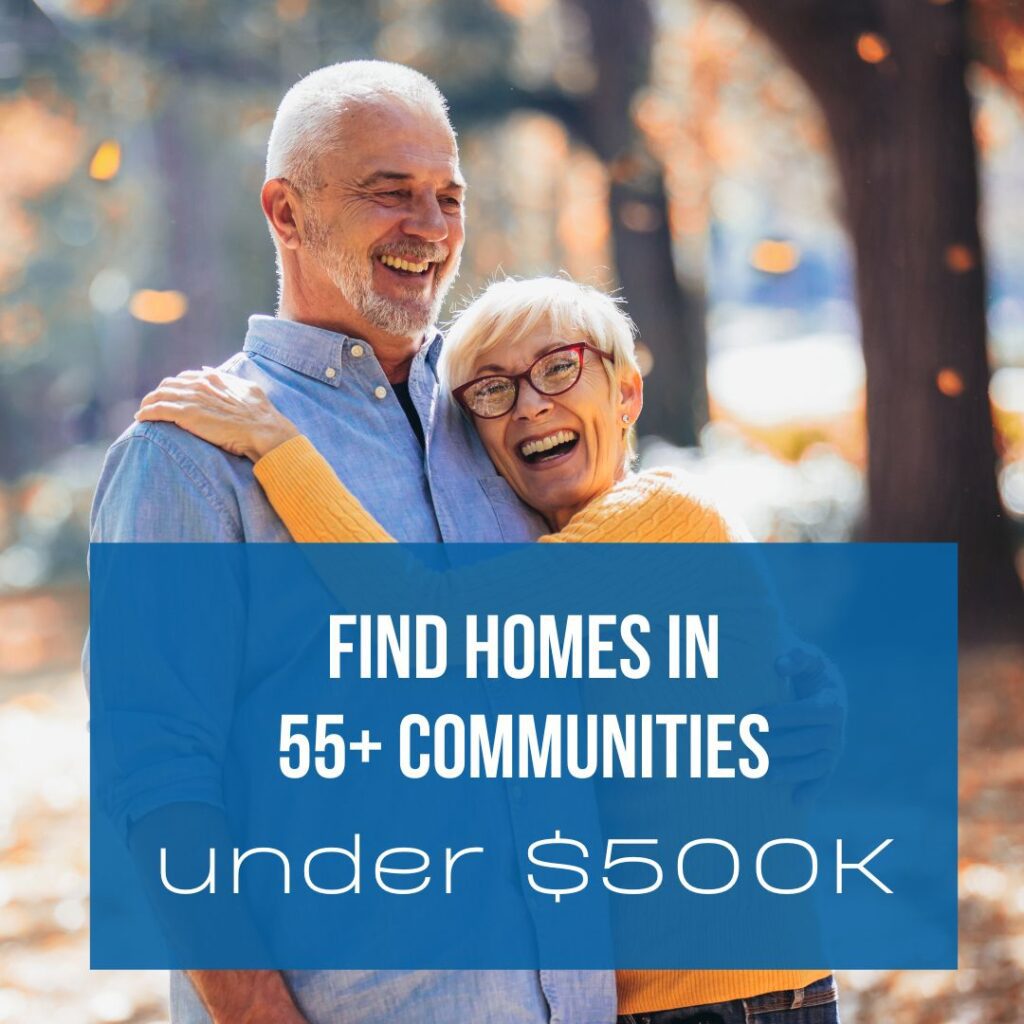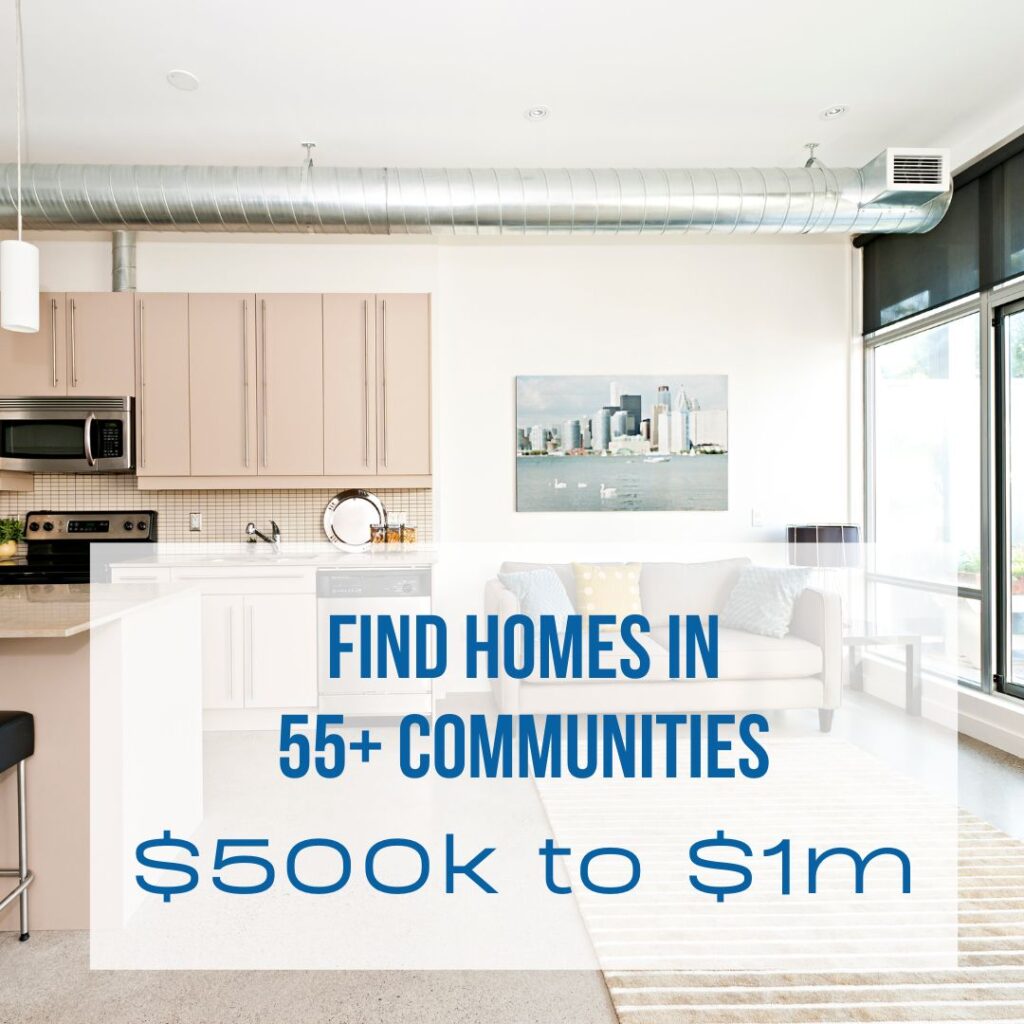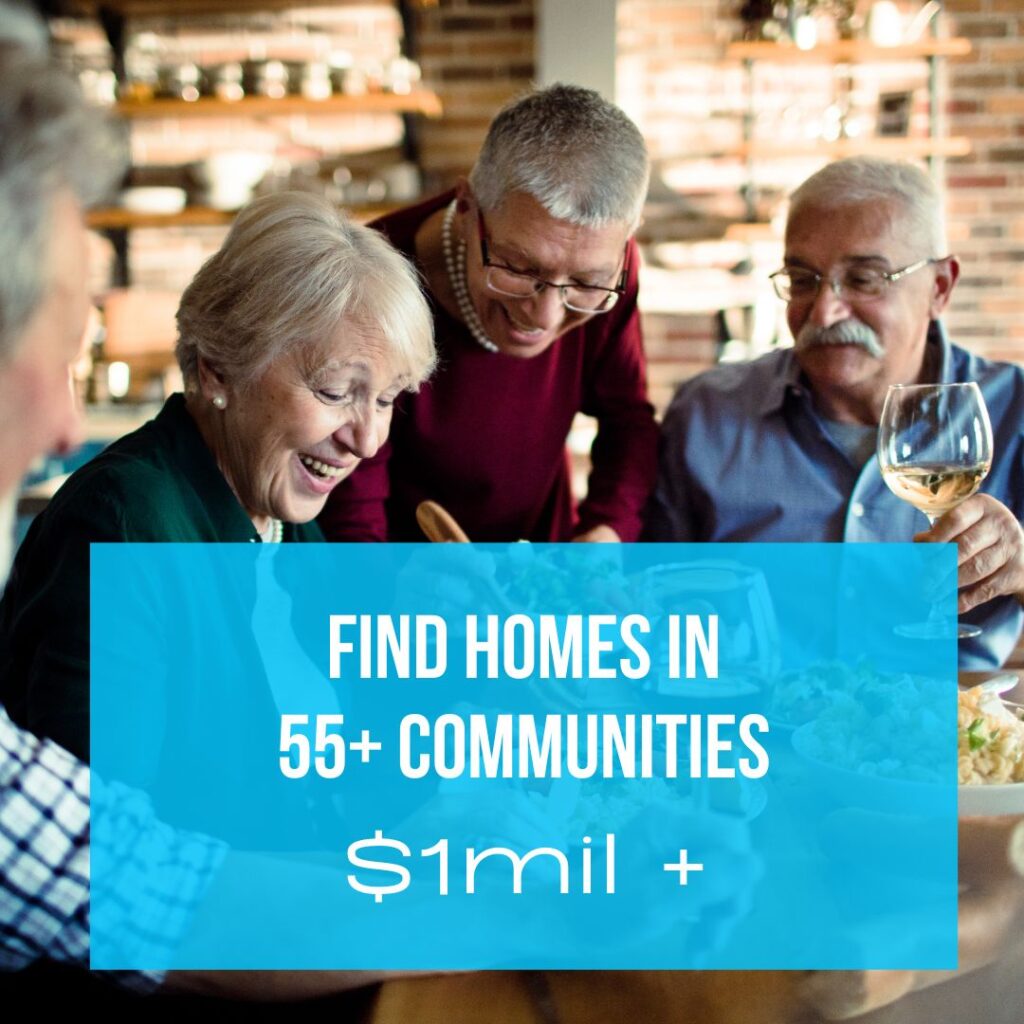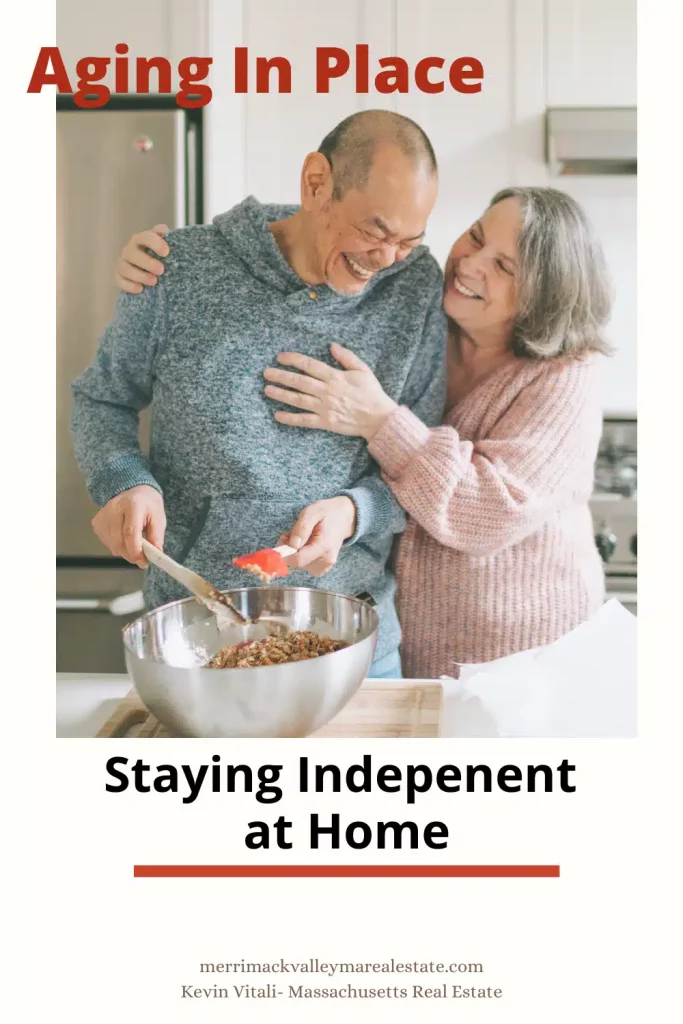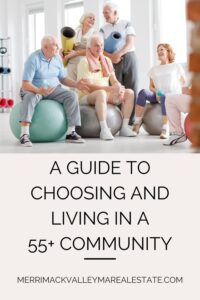
Living in a 55+ community in Massachusetts is not merely about selecting a new home; it’s about choosing a lifestyle. By carefully weighing the benefits against your personal needs and preferences, you can make an informed decision that enhances your retirement years.
Today, more than ever, active adults entering their retirement years have plenty of choices. They can choose to remain in their own homes for many years, downsize into a smaller, more manageable home, or transition into an active adult community.
The key to moving into a Massachusetts over-55 community lies in where the comforts of home meet the ease of living, and new friendships await to enrich every day. With the right approach and considerations, moving to an active adult community can be one of the most rewarding decisions you make for your golden years.55=
Jump To A Section....
Introduction to 55+ Communities
Whether you move to a community of 71,000 homes in the Villages located in Florida or more local like the Fairways Condominiums in Haverhill MA with 107 units, find out if an active adult community is right for you.
What is a 55+ Community?
A 55+ community, often called an active adult community, is a residential neighborhood designed for adults at least 55 years old. These communities cater to the lifestyle preferences of retirees or those nearing retirement, focusing on comfort, convenience, and a sense of belonging.
Unlike typical residential developments, 55+ communities are built to facilitate an active and engaging lifestyle for their resident population, providing amenities and environments that are hard to match elsewhere.
At the heart of a 55+ community is the blend of communal living with personal independence. Residents own their homes, which range from single-family houses to condominiums or townhomes, ensuring they have their private space while being part of a community that caters to the population’s demographic.
The emphasis of an over-55 community is on reducing the hassles of maintenance and maximizing opportunities for leisure, social activities, and wellness.
Does Everyone Have To Be Over 55 in MAassachusetts Over-55 Community
Age-restricted communities in Massachusetts come in several varieties. It is essential to read the covenants of the communities and understand the restrictions in an age-restricted community.
As a Massachusetts REALTOR, I see 99% of the time, that one of the owners needs to be over 55 years of age and all other household members must be over 18. Meaning a couple where the husband is 56 and the wife is 49, could purchase into the community.
Are Children Allowed?
Over-55 communities are unique in being allowed to exclude household members under 18. So, no one under 18 can reside in the home but can certainly visit.
Now, things happen in life, and emergencies arise. Many age-restricted communities will have provisions allowing for a short-term stay of 3-6 months for someone under 18.
Beyond the age restriction for a household member, there may be regulations on using amenities for someone under 18. The biggest is the pool area. The rules may not allow a minor to use some or all of the amenities in the complex. Read the rules before purchasing in an age-restricted community.
The Benefits Of Living In A Massachusetts 55+ Community
The benefits of living in a 55+ community are multifaceted. First, the residential units cater to the senior living lifestyle. Often, you will find first-floor primary bedroom suites and bathrooms and open floor plans that may cater to one as they age. The homes in active adult communities address some issues for those wishing to age in place.
Beyond the physical space, your neighbors will be in the same stage of life as you. You will share common interests and goals and build a support system around you.
Many of these communities prioritize supporting the health and well-being of their residents. Whether it’s through a class at the fitness center, a club meeting, or a casual get-together with neighbors, the opportunities for an active and connected lifestyle are boundless.
For many, moving to a 55+ community isn’t just a change of address—it’s a step toward a more fulfilling, engaged, and vibrant way of life as you enter your golden years.
Community Rules and Restrictions:
A Homeowner’s Association or HOA usually governs a retirement community. This means understanding your rights as a member, how the HOA is governed, and the role the HOA plays in the everyday life of the community members.
There will also be rules and regulations, including age requirements, pet policies and rules about guests. These rules can significantly impact your lifestyle, so ensuring they align with your expectations and needs is crucial.
HOA Fees and What They Cover:
Homeowners Association (HOA) fees are a staple of 55+ communities. The HOA or Condo fees cover maintaining amenities and common areas. Assess these costs carefully and understand exactly what services and amenities your fees will cover to avoid surprises down the line.
Review last year’s budget and the current proposed budget to fully understand where the money is going.
Amenities and Lifestyle Offerings:
The lifestyle that an over-55 community offers is what many are looking for. Evaluate the amenities (like fitness centers, pools, and clubs) and make sure they meet your expectations and needs.
The lifestyle and social offerings (such as classes, events, and social gatherings) available to you is an essential components of an active adult community. Ensure they match your interests and lifestyle to maximize your community living experience.
Location and Proximity:
The community’s location regarding healthcare services, shopping, dining, and cultural attractions is vital. Does the surrounding community provide you with your needs and the amenities you seek?
It is also essential to consider whether friends and family are still accessible to you in your new community. A big move to Florida will change all of that. But what about a move that’s 40 minutes away from what you know? Will it hinder your ability to stay connected?
Considering your needs not only now but in the future is essential.
Community Culture and Social Environment:
Each 55+ community has its unique vibe and social environment. Visit the community, attend events if possible, and speak with current residents to gauge whether the social atmosphere feels right for you.
In my experience, I have helped many clients move into over 55 communities. They are all unique and have a different feel. Some are just housing while others offer social scenes that would suit almost anyone’s tastes. As well as everything in between.
Take some time, get to know the community, and ensure it is what you want.

Privacy and Space Considerations:
Consider the layout and design of the community as well as your new living quarters. Understand the privacy levels and the space around properties to ensure they meet your personal preferences for comfort and space.
One big motivator to move to a 55+ community is to avoid the maintenance of owning a large property. With that comes condensed living, putting you near your new neighbors. While you may no longer want a big yard, is there some private outdoor space you can enjoy, like a deck or a patio, or even a tiny, fenced yard?
Resale Potential and Restrictions:
Investigate the community’s policies on reselling your property. Some communities may have restrictions that could affect your ability to sell your home in the future or impact its market value. In most 55+ communities, a home sale is like any other.
Do note that over 55 communities have a limited home-buying pool compared to a typical condo or single-family home available to anyone. Selling a condo in your community may take a bit longer.
There is a concept called the Silver Tsunami. It addresses the fact that over 11,000 baby boomers are turning 65 every day, the largest segment of population growth. The change in demographics will also have far-reaching implications.
So, the good news is the over-55 population is exploding, and active adult communities are a desirable living option and will continue to rise.
Long-Term Suitability:
Think about the community’s long-term fit. As your needs change, the community should still be able to support your lifestyle. Consider aspects such as accessibility features, healthcare services on-site or nearby, and whether the community can accommodate changes in mobility or health.
The goal is to make your new homework for you for years to come.
Before deciding, it’s wise to visit several communities, if possible, and spend time in each to get a feel for the day-to-day living experience. Engage with the community members, ask questions, and use this direct insight to inform your decision-making process. Choosing a 55+ community is not just about the amenities on offer but finding a place to enjoy a fulfilling, comfortable, and engaging lifestyle.
2 Clients, The Same Massachusetts Over-55 Complex and 2 Different Experiences
I want to highlight the importance of doing your research and even some soul-searching about moving into an active adult community. Over a period of a year, I moved two clients into the same community. Both had been downsizing from their family homes for many years.
Client One
Client One came to me explicitly wanting to move into a 55+ community. They had done their homework and sought a community with an active social scene.
From day one, they embraced the very active community, getting involved in clubs and social events. The husband became a member of the board of trustees.
Shortly after, I asked how it was going. They expressed how they appreciated not having to be involved in property maintenance daily and how they enjoyed being part of their new community.
Client Two
Client 2 wanted a condominium or a townhouse after selling a long-term home where the family was raised. They were not necessarily looking for an active adult community but fell in love with a particular unit in an over-55 complex.
The transition was difficult for them. Their biggest complaint was living by a set of rules and regulations. In the first month, they received several notices regarding waste removal, parking, and pets. They expressed that they felt like they were living in a fishbowl and were under constant scrutiny.
We talked about sticking it out for a bit, and if need be, maybe it would be best if they sold and moved into a single-family home.
After six months, I reached out again, expecting they would still want to move. But they surprised me and said they loved it and they were staying. What made the difference?
The difference was the new connections they made in the community. They found other residents with similar interests and became part of the social network.
The Takeaway
First, I would like to say transitioning from a single-family home into a planned community like a condominium complex can be difficult for anyone and I have had clients struggle with the transition.
It is essential to understand the governing and rules and regulations that you must live by. In the case of client two, they had all the documentation, but they glossed over it. Read and understand the documents.
But in the end, both clients loved their new community and the social connections they made. Taking the time to understand what living in an active adult community might mean to you can significantly enhance your transitioning experience and offer you a new, rewarding lifestyle.
The Role Of Your REALTOR and Buying In 55+ Community
You will probably only transition once into an over-55 community. So, knowing what to look for and consider may be a foreign concept.
However, as an agent of 20+ years and specializing in senior living arrangements and a deep knowledge of buying into a community with an HOA, I have the experience to help make the right choices and the transition. An agent with experience can be a valuable resource during your the transition.
Senior Real Estate Specialist
Some REALTORS have undergone specialized training, including myself, to facilitate the needs of those looking to make different living choices as they head into their golden years. This includes staying in an existing home, downsizing, moving to an over-55 community, and even assisted living.
The right REALTOR is critical. Whether you are staying close to home or seeking a retirement location in Florida or Arizona, seek a real estate agent with experience in active adult communities and HOAs. They will help you make the move to a new lifestyle.
Over-55 Community FAQs
What exactly is a 55+ community?
Are there any restrictions on who can live in a 55+ community?
What types of amenities can I expect in a 55+ community?
Can my family members, such as grandchildren, visit or stay with me?
Can I still work while living in a 55+ community?
Are pets allowed in 55+ communities?
Summary
Doing some deep dive soul searching and research is essential to happily transitioning into a 55+ community.
Having the big family home as the kids leave the house and you face retirement may not be a life choice you want to continue. An active adult community can provide you with many benefits as you go into your retirement years.
Being surrounded by people at a similar stage in life who have similar challenges, goals and interests can help fill those hours you are no longer working. In some communities, there are amenities to enjoy and many social opportunities to plug into.
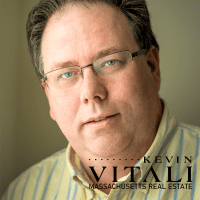
Author Bio
Kevin Vitali is a Massachusetts REALTOR out of Haverhill MA that serves Essex County and Northern Middlesex County in Massachusetts. If you want to buy or sell a home, let me use my years of experience to get you the best possible outcome.
Feel free to contact me to discuss any upcoming moves. I am always happy to answer your questions
Call 978-360-0422 Email kevin@kevinvitali.com

